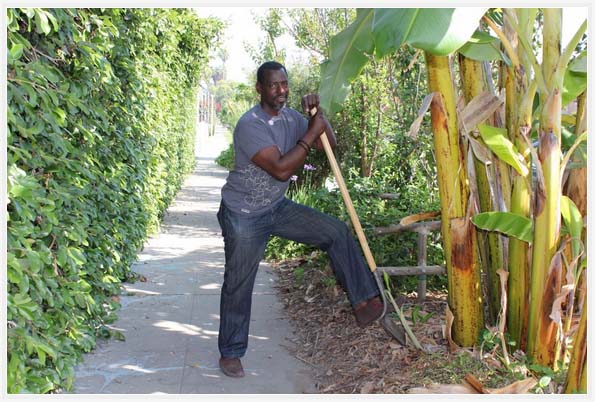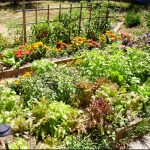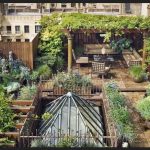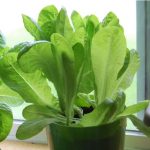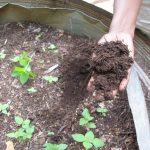Free Vegetable Gardens in L.A.
Rather than going to the grocery store to pay a high price for quality produce, residents of L.A. can now simply walk out to that strip of earth between the sidewalk and the road.
Image 1: Lush greenery shades the street on Ron Finley’s parkway in South L.A.It all started about four years ago when Ron Finley was served an arrest warrant for planting carrots. His residence is in South Central Los Angeles, and when he got tired of traveling so far for healthy and organic foods, he decided to do grow his own. Since he was required by law to maintain the strip of land between the sidewalk and the street that the city owns, that’s where he planted his vegetable garden. He got himself into trouble when he didn’t pay the $400 permit that the city required be paid before a person can use the space for gardening.
This event got quite a bit of media coverage, and after a petition was sent around by community activists, the city revoked the arrest warrant. However, the movement didn’t end there, as more and more people began to start their own guerilla gardening projects throughout L.A. This finally led to a policy change in which residents are able to plant gardens beside the sidewalk without paying a fine.
“In some of these neighborhoods, that’s the only place people have to plant,” says Finley. “Between the concrete, asphalt, and chain link fences, they don’t have any other places. To me, it’s about making food hyperlocal. Not just local, hyperlocal.”
The gardens help give neighborhoods control over their own food. “It’s about being self-sustaining,” Finley says. “It’s about you changing your life and being responsible for your health, and for your community. It’s you taking a stand that this is mine. … We’ve basically been enslaved by food companies, and they’re killing us slowly. There’s other means and other ways to supply food.”
For Finley, the sidewalk gardens are also about more than food. “It’s walking outside your door and being greeted by hummingbirds and dragonflies and bees, and a green, healthy ecosystem that’s not in these communities—it doesn’t exist,” he says. “I have birds that I’d never seen in my life before coming to my garden now. And you’re filtering the air. People walk by and see beautiful things, instead of just concrete.”
Finley’s garden, which he shared in a TED talk, has inspired others to grow in vacant lots around the world, from Brazil to South Korea.
“I’m the simplest man you know,” he says. “I’m not one of those academics that don’t do shit but reads about it. The difference is, I do shit. I have a proof of concept and it works. I don’t need studies—I know that this kid put a carrot in the ground and she saw it grow, and she took it out of the ground and was proud as hell, and she wiped it off and put it in her mouth and ate it. Now she has skin in the game.”
“I tell people, ‘Change your food, change your life,” he says. “Grow your food, save your life.”
The new ordinance went into effect from April 2015.
